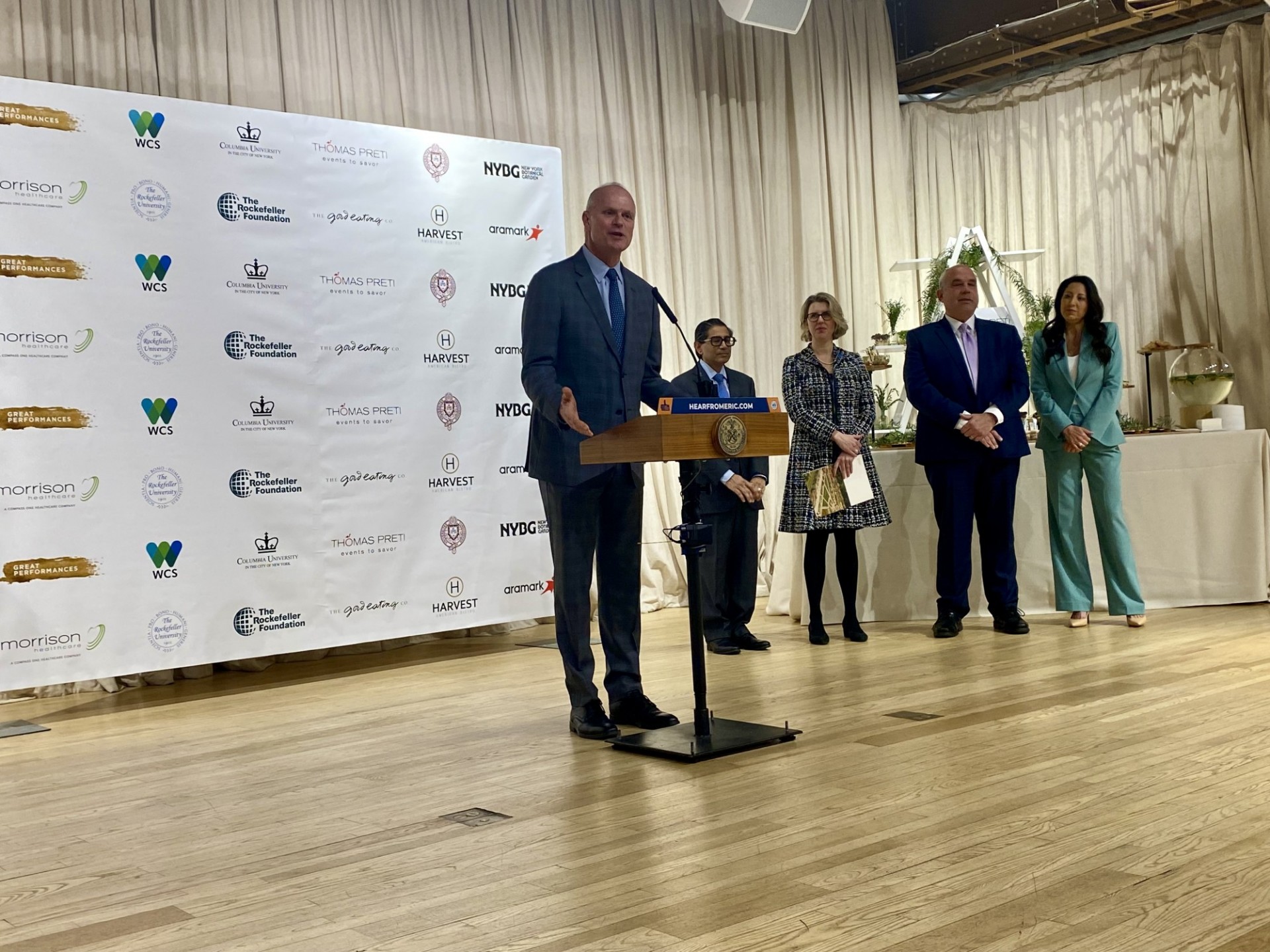Columbia University Commits to Reducing Food-Related Carbon Emissions by 25 Percent by 2030
Joins NYC Mayor’s Office at Plant-Powered Carbon Challenge Launch
Image Carousel with 4 slides
A carousel is a rotating set of images. Use the previous and next buttons to change the displayed slide
-
Slide 1: Columbia members pose with Mayor Adams
-
Slide 2: Attendees pose for group photo
-
Slide 3: Attendees from Columbia speak to Mayor Adams
-
Slide 4: Scott Wright from Columbia speaks at podium


Members of Columbia University leadership stood today alongside Mayor Eric Adams, New York City officials, and leading national and local institutions to commit to reducing food-related carbon emissions.
As part of the city’s broader sustainability plan to reduce carbon emissions by the year 2030, the Plant-Powered Carbon Challenge calls on New York City’s private sector to reduce food-related carbon emissions 25 percent by 2030. In partnership with nonprofit Greener by Default, challenge participants are offered science and behavioral research to inform strategies and tools to track emissions through food procurement.
Mayor Adams addressed the group of signatories at the event to recognize their effort.
“Thank you for stepping up and saying ‘we can do better,’ because we can. Together, we can do great things.”
In December, Columbia University became the first official signatory of the Plant-Powered Carbon Challenge through a student capstone recommendation. Columbia Dining and the Office of Sustainability partnered with the Columbia Climate School to sponsor a project in which students sought to measure and reduce emissions from the procurement of food in John Jay dining hall. Students found that ruminant meat comprises just 13.4% of purchased products but accounts for 72% of Columbia Dining's total carbon footprint. The student recommendation highlighted strategic shifts Columbia Dining can make, without sacrificing taste, cost, and most importantly – choice.
“Since we started the Challenge in January this year, John Jay dining hall has served 135,278 meals – and through strategic changes in the menus for those meals, we have already reduced our servings of beef by 30% and reduced our carbon footprint by 20.9%.”
Change has been implemented through small steps, like offering plant-forward meals at traditional stations in the dining servery. In March, Dining hosted its annual Battle of the Dining Halls which featured a plant-based theme, as a way to showcase its culinary team’s commitment to creating delicious menus.
“The Columbia team has shown true vision in their implementation of the challenge.”
Looking ahead to the fall, Columbia Dining will evaluate menus and initial results, then expand efforts to other dining locations to ensure the 25% reduction goal is met.
Columbia University’s own Plan 2030 is a ten-year strategic plan that outlines aggressive sustainability goals, grounded in climate science, for Columbia’s New York campuses to achieve net zero emissions by 2050. While campus energy systems play a key role, consumption of goods and services – like food – are a critical component in the University’s climate plan.
See the event recording.
